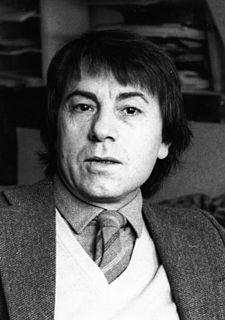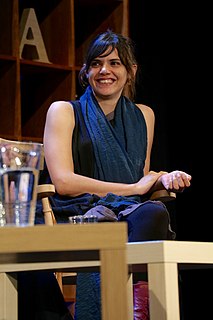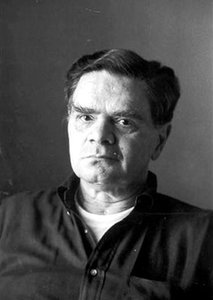A Quote by Agustin Gomez-Arcos
Often in winter the end of the day is like the final metaphor in a poem celebrating death: there is no way out.
Quote Topics
Related Quotes
When death comes, it's just like winter. We don't say, "There ought not to be winter." That the winter season, when the leaves fall and the snow comes, is some kind of defeat, something which we should hold out against. No. Winter is part of the natural course of events. No winter, no summer. No cold, no heat.
I think that poetry is an act of celebration, that anytime you're writing a poem, it means that you're celebrating something, even if it's a sad poem, if it's an angry poem, a political poem or anything at all. The fact that you're taking the time and energy to pick up this thing and hold it to the light, and say, "Let's take some time to consider this," means that you've deemed it worthy enough to spend time on - which, in my opinion, is celebrating.
The facts of nature are what they are, but we can only view them through the spectacles of our mind. Our mind works largely by metaphor and comparison, not always (or often) by relentless logic. When we are caught in conceptual traps, the best exit is often a change in metaphor not because the new guideline will be truer to nature (for neither the old nor the new metaphor lies "out there" in the woods), but because we need a shift to more fruitful perspectives, and metaphor is often the best agent of conceptual transition.
Introduction To Poetry I ask them to take a poem and hold it up to the light like a color slide or press an ear against its hive. I say drop a mouse into a poem and watch him probe his way out, or walk inside the poem's room and feel the walls for a light switch. I want them to waterski across the surface of a poem waving at the author's name on the shore. But all they want to do is tie the poem to a chair with rope and torture a confession out of it. They begin beating it with a hose to find out what it really means.
I often like to think that our map of the world is wrong, that where we have centered physics, we should actually place literature as the central metaphor that we want to work out from. Because I think literature occupies the same relationship to life that life occupies to death. A book is life with one dimension pulled out of it. And life is something that lacks a dimension which death will give it. I imagine death to be a kind of release into the imagination in the sense that for characters in a book, what we experience is an unimaginable dimension of freedom.
Cities have often been compared to language: you can read a city, it's said, as you read a book. But the metaphor can be inverted. The journeys we make during the reading of a book trace out, in some way, the private spaces we inhabit. There are texts that will always be our dead-end streets; fragments that will be bridges; words that will be like the scaffolding that protects fragile constructions.
Often you've read another poem that you think is so beautiful that you'd like to make something like that. And so you try to make a sonnet that works in a certain kind of way, or you try to make something that's songlike, or you create a refrain, or you love the way a poem works in two line stanzas and you try to do that.
As a Buddhist, I view death as a normal process, a reality that I accept will occur as long as I remain in this earthly existence. Knowing that I cannot escape it, I see no point in worrying about it. I tend to think of death as being like changing your clothes when they are old and worn out, rather than as some final end. Yet death is unpredictable: We do not know when or how it will take place. So it is only sensible to take certain precautions before it actually happens.



































